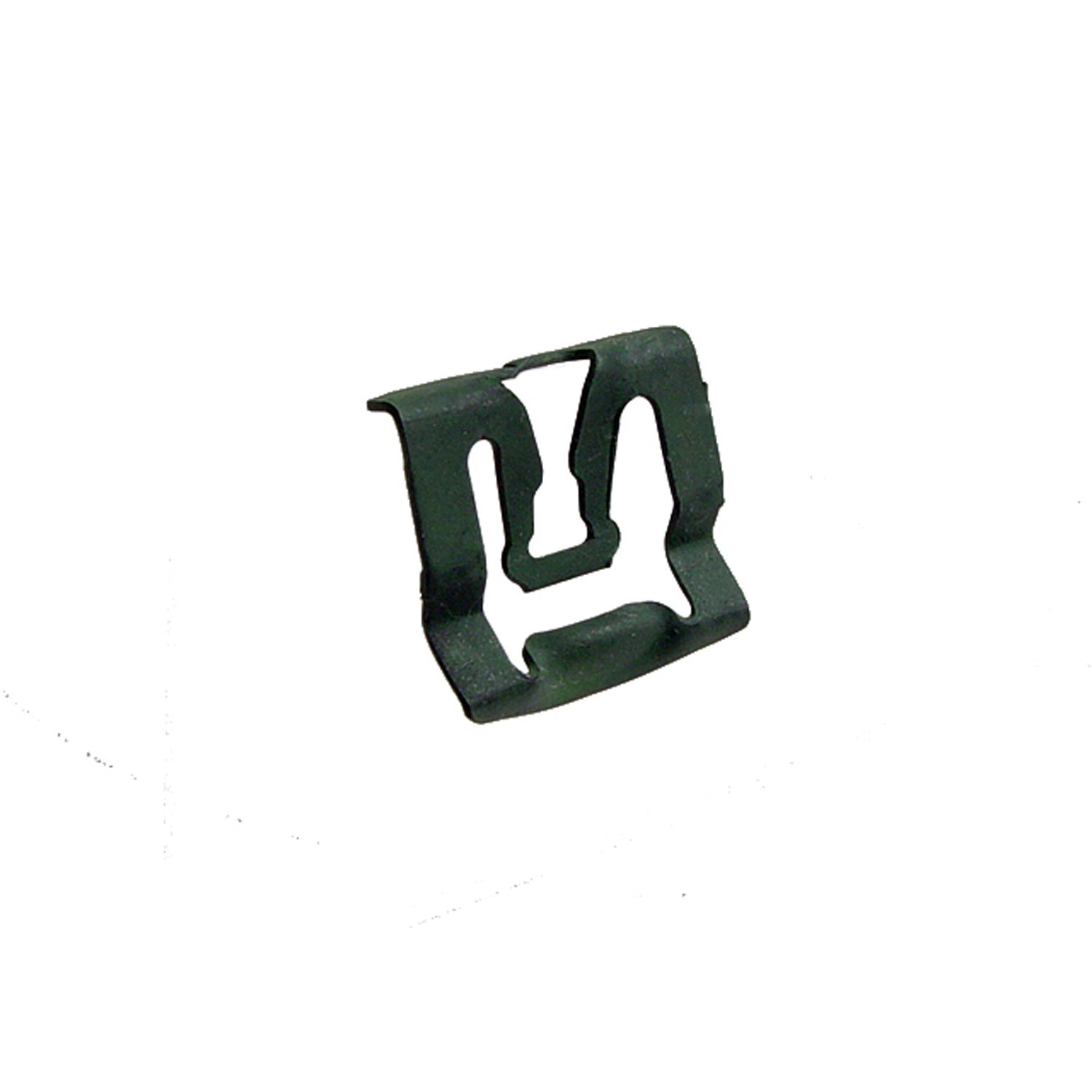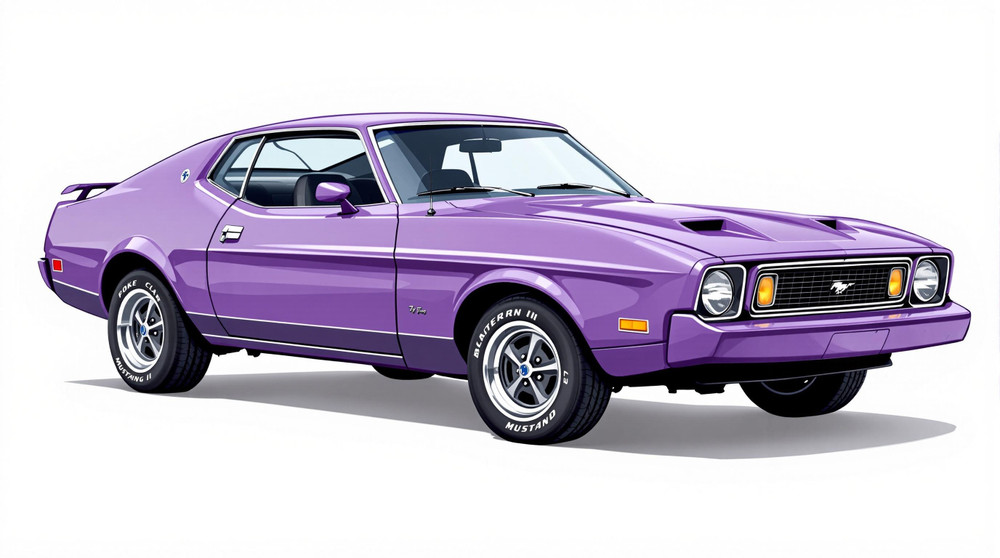Image of 1977 Ford Mustang Ii, Note: These illustrations use artistic license and may differ from actual historical models.
Performance Metrics
Fundamental Metrics
Emotional Appeal
MMP Rating
| Engine Specifications | |
|---|---|
| Engine: | 2.3L I4, 2.8L V6, 5.0L V8 |
| Displacement: | 140-302 cu in |
| Horsepower: | 88-139 hp |
| Torque: | 118-250 lb-ft |
| Compression Ratio: | 8.4:1 - 9.0:1 |
| Ignition System: | Electronic |
| Cooling System: | Liquid-cooled |
| Performance Specifications | |
| 0-60 Time: | 10-12 seconds |
| 1/4 Mile Time: | 17-19 seconds |
| Top Speed: | 105-110 mph |
| Transmission and Drive | |
| Drive Type: | RWD (Rear Wheel Drive) |
| Transmission Type: | 3-speed automatic, 4-speed manual |
| Fuel and Efficiency | |
| Fuel System Type: | Carburetor |
| MPG: | 15-20 mpg |
| Dimensions and Brakes | |
| Brakes: | Front disc, rear drum |
| Wheelbase: | 96.2 in |
| Weight: | 2,600-2,900 lbs |
Note: Specifications for classic cars are given to the best of our ability, considering the limited and variant data available.
1977 Ford Mustang II: A Compact Icon in Automotive History
The 1977 Ford Mustang II is not merely a car; it's a statement of resilience and adaptability in the ever-evolving automotive landscape. Born from the ashes of the oil crisis and a changing market, Ford's decision to downsize their iconic pony car resulted in a vehicle that would both divide and captivate enthusiasts for decades. This Mustang variant emerged as a response to consumers' cries for more fuel-efficient vehicles, marking a significant shift from the muscle car era to an age of practicality without completely sacrificing style.
Unique among its predecessors, the 1977 Mustang II was a product of necessity, reflecting the zeitgeist of its time. It was during this period that Ford introduced the "Cobra II" package, an attempt to recapture some of the performance flair that had been lost in the transition to smaller cars. Though not a powerhouse, this edition added a touch of sportiness with its racing stripes and front and rear spoilers, becoming an emblematic figure of the late '70s automotive scene.
Design and Innovation
The exterior styling of the 1977 Ford Mustang II was a blend of European influence and American ingenuity. Its compact dimensions were complemented by a long hood and short deck, paying homage to its muscular ancestors while conforming to the demands for more efficient vehicles. Inside, drivers were greeted with an interior that prioritized comfort over opulence. The quality of materials was reflective of the era's economic considerations, yet still managed to offer a cozy cabin experience.
Technologically, the Mustang II carried forward advancements from previous years, including rack-and-pinion steering which was still relatively new to American cars at the time. Color options ranged from subdued earth tones to more vibrant hues, with shades like "Bright Aqua" and "Dark Brown Metallic" catching buyers' eyes. Among body styles, the notchback coupe and fastback hatchback were offered, with the latter often being associated with the sportier image of the Mustang lineage.
Historical Significance
The 1977 Ford Mustang II's impact on automotive design was less about groundbreaking technology and more about cultural adaptation. It set itself apart by demonstrating that an American icon could downsize without losing its identity entirely. This model paved the way for future iterations of the Mustang that would continue to balance performance with practicality.
Performance and Handling
In terms of performance, this iteration of the Mustang wasn't going to set any land speed records. With engine options like the 2.3-liter four-cylinder or the 5.0-liter V8, top speeds and acceleration varied widely across models. The V8 could propel the Mustang II from 0-60 mph in a modest range compared to today's standards but provided enough pep for daily driving at that time.
The handling characteristics were typical for compact cars of that era; it managed bumps adequately and could take on windy roads with reasonable confidence. Drivers often noted that while it wasn't as thrilling as earlier models, there was still joy to be found in piloting a piece of American history.
Ownership Experience
The 1977 Mustang II found its niche as a versatile vehicle—it served as a daily driver for many, while others cherished it as a show car or even subjected it to weekend racing escapades. Maintenance was relatively straightforward due to its simple mechanics and abundant parts availability at that time.
Fun Facts
This model year saw some interesting trivia come into play; for instance, King Cobra editions were introduced later in production which featured distinctive graphics and spoilers—these are particularly sought after today by collectors. Celebrity ownerships have occasionally surfaced in auctions, adding allure to specific vehicles' provenance.
Collector's Information
The current value range for collectors can vary significantly based on condition, originality, and specific model variants such as the Cobra II or King Cobra editions. Estimates suggest that tens of thousands were produced during this model year alone. As for appreciation or depreciation trends, well-preserved examples have seen modest increases in value over time due to their growing classic status among enthusiasts.
Conclusion
The 1977 Ford Mustang II stands as a testament to adaptability within America's automotive heritage—a compact version of an enduring legacy that continues to captivate hearts and minds across generations. Whether you're behind the wheel or admiring from afar, this car is undeniably part of our collective motoring story.
1977 Ford Mustang Ii Catalog of Parts
 1977 Ford Mustang II Windshield Reveal Molding Clip. Made of steel. Each-WF 228-AWindshield Reveal Molding Clip. Made of steel. Each
1977 Ford Mustang II Windshield Reveal Molding Clip. Made of steel. Each-WF 228-AWindshield Reveal Molding Clip. Made of steel. EachWhy Choose Metro?
For over 100 years, Metro Moulded Parts has been the pinnacle of quality in classic car restoration parts. Our commitment to precision and authenticity in every component ensures a perfect fit and an OEM-level appearance.
- Expert Craftsmanship & Quality: Each part is a testament to our dedication to reliability and perfection, crafted from original designs and thoroughly tested.
- Advanced Technology: We use cutting-edge techniques to create flawless, long-lasting parts that surpass others in performance.
- SuperSoft Sponge – The Ultimate Door Seal: Not only are our door seals 30% softer than competitors', but they're also guaranteed to never leak. They effectively reduce wind and road noise, enhancing your classic car's comfort and driving experience.
- Proudly American: Our parts are a product of American craftsmanship, made in the USA with a spirit of excellence and heritage.
- Unrivaled Warranty: We back our products with a 30-year industry-leading warranty, a testament to our confidence in their quality.
Join us in preserving the legacy of classic cars with parts that are crafted for perfection, not just made.

